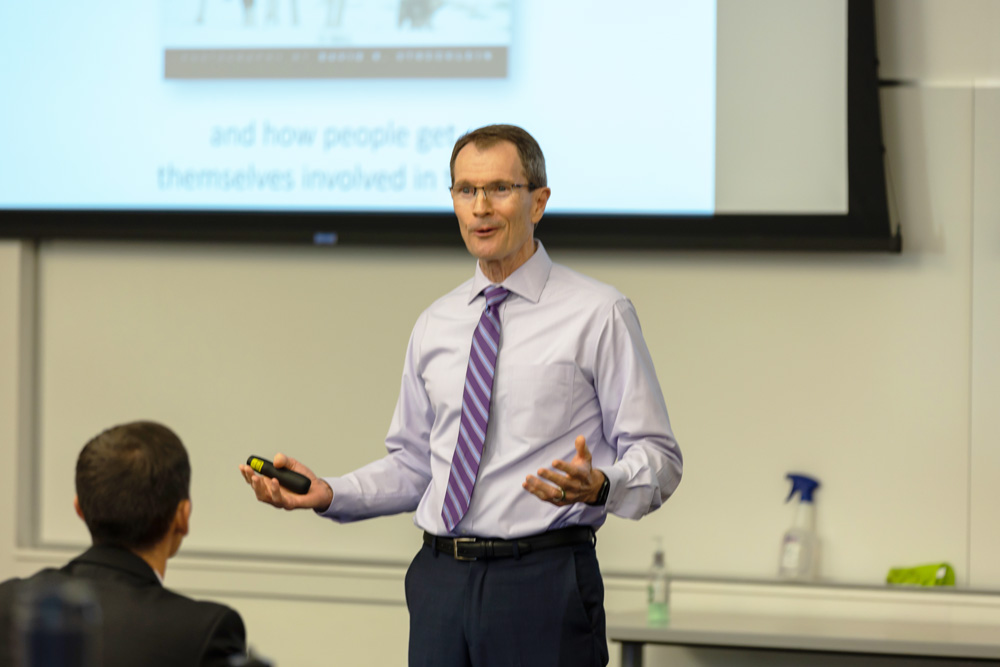What do you stand for?
Speaker: Kent Noble
Course Duration: 90 - 120 Minutes
Course Overview:
In this course, we guide participants through a process where each person creates a personal code of ethics based on what matters most in their lives and careers. Throughout the process, we demonstrate how the Daniels Fund Ethics Initiative Principles relate to one’s personal code.
What's your brand?
Speaker: Kent Noble
Course Duration: 75 - 90 Minutes
Course Overview:
In this course, we put participants through a brief personal brand self-evaluation exercise. Then we reveal our opinion on personal branding, which is: To have a GREAT personal brand, we believe you need to be known for your integrity, attitude, and grit! We then discuss practical ways we can use the Daniels Fund Ethics Initiative Principles to build our brands in these three areas.
Ethical Leadership
Speaker: Dr. Chase Thiel
Course Duration: 60 Minutes
Course Overview:
In this course, Dr. Chase Thiel relates the importance of personal integrity to explain why there seems to be a scarcity of effective leaders in the world today. Dr. Thiel then provides a principle-based leadership framework. Finally, he leads attendees through a process of developing their own set of leadership principles and preparing to lead consistently with them.
Standing on Solid Ground: Leading with Principle
Speaker: Dr. Chase Thiel
Course Duration: 60 Minutes
Course Overview:
In this course, Dr. Chase Thiel relates the importance of personal integrity to explain why there seems to be a scarcity of effective leaders in the world today. Dr. Thiel then provides a principle-based leadership framework. Finally, he leads attendees through a process of developing their own set of leadership principles and preparing to lead consistently with them.
Proactive Ethical Leadership
Speaker: Kent Noble
Course Duration: 60 Minutes
Course Overview:
In this course, Dr. Chase Thiel relates the behavioral ethics literature to explain why good employees sometimes commit unethical acts in companies with the typical ethical “safeguards” (e.g., code of conduct, annual ethics training, etc.). He then presents a set of research-based principles for removing ethical pitfalls in the modern organization and, finally, leads attendees through a process of identifying and altering practices that unintentionally encourage employee ethical misconduct.


